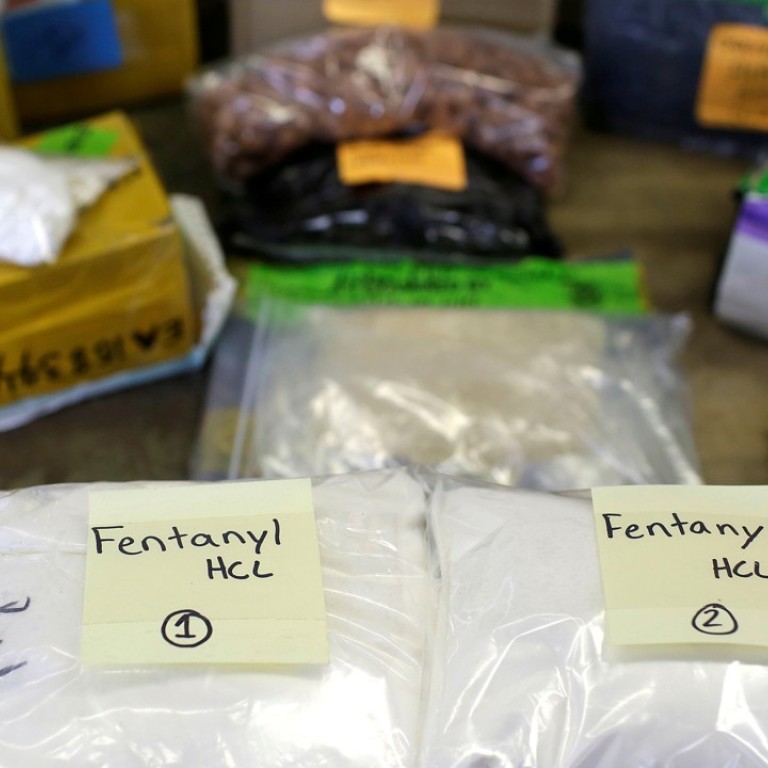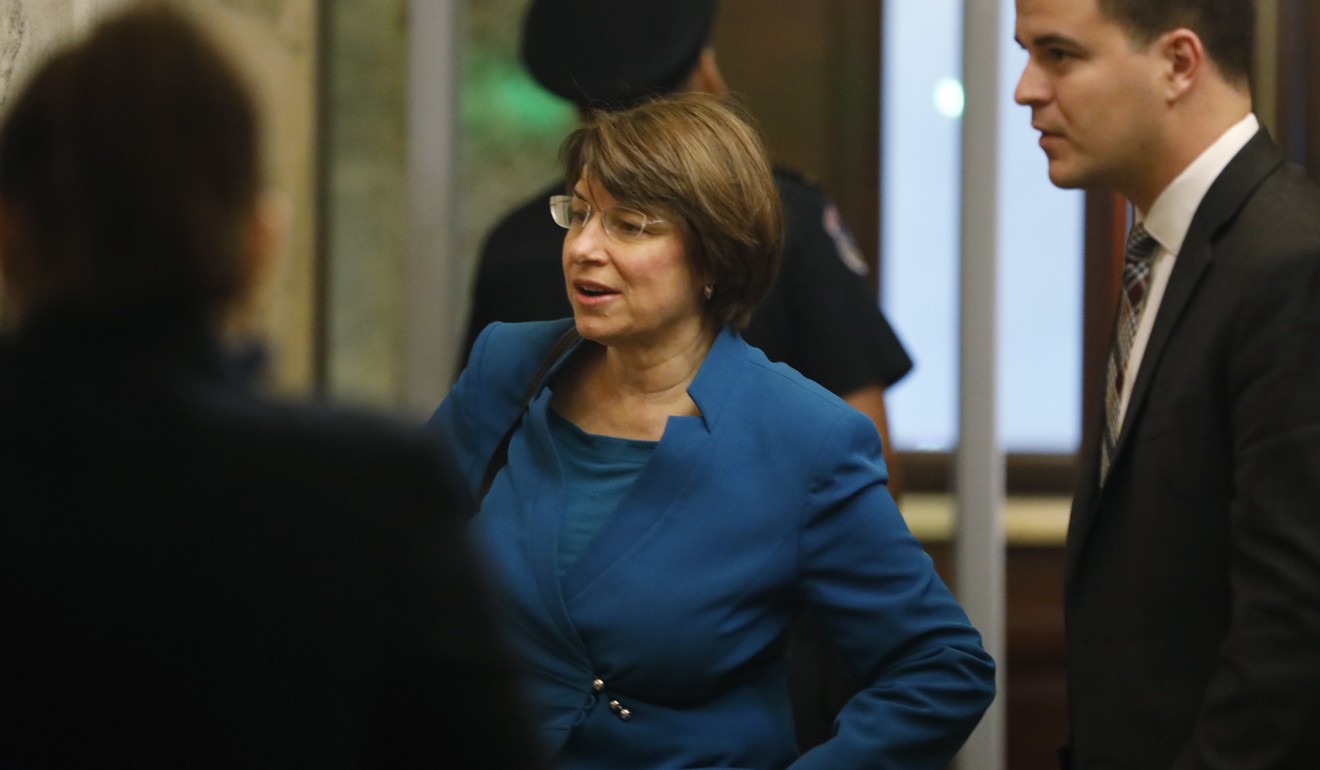
US lawmakers propose going after Chinese suppliers of fentanyl
- Legislation would levy economic sanctions on any individual identified as taking part in the production or trafficking of the synthetic opioid
- Proposal follows enactment of a law that equips postal service to better screen for international shipments of fentanyl
Members of the US Congress have proposed new legislation targeted at China in an effort to stem the influx of fentanyl, a synthetic opioid responsible for tens of thousands of drug overdose deaths each year in the United States.
If passed, the Combating Illicit Fentanyl Act of 2018 would commit the US Treasury and State Departments to carry out investigations to identify any Chinese national involved in the production and trafficking of fentanyl.
The act, introduced on Friday by Representative Christopher Smith, a New Jersey Republican, calls on US President Donald Trump to levy economic sanctions on any such individual, including members of the Chinese government. Such sanctions would include barring an individual’s admission into the US and blocking all transactions in property and interests the individual held in the US.
“Synthetic fentanyl produced in China and exported to the US is ravaging our communities,” said Smith, who chairs the House Foreign Affairs Committee’s subcommittee on global health. “Whereas China has gone to war with other drugs that have a demand in China – such as methamphetamine – it has conspicuously failed to launch a similar crackdown on fentanyl, which has no demand in China.”
The announcement of the bill came just days after Trump signed into law legislation intended to reduce the effects of opioids in the US by expanding education to cut demand, bolstering treatment for addiction, and equipping the US Postal Service to better screen international packages for fentanyl.
The passage of that bill on Wednesday was well received across the political spectrum, suggesting that further legislation calling for tough measures against fentanyl suppliers could enjoy similar support.
“Our law enforcement agencies will have more tools to prevent synthetic drugs from being transported from overseas through our postal system”, Senator Amy Klobuchar, a Minnesota Democrat, said following the Wednesday law. “This bipartisan legislation is a major step forward in combating the opioid crisis by stemming the flow of synthetic drugs into our country.”

Fentanyl, which is accounting for an increasing percentage of all US drug overdoses, killed roughly 29,500 people in the US last year, close to double the amount of fatalities from heroin, according to figures from the Centres for Disease Control and Prevention.
While there are no statistics indicating the provenance of fentanyl consumed in the US, China-based suppliers of the drug are easily located online, publicly indicating that their products – sold for the purpose of “chemical research” – can be shipped globally via international carriers including EMS, UPS, and FedEx.
One vendor contacted by the South China Morning Post said one kilogram of fentanyl would cost a buyer US$5,500. With fatal doses of two milligrams, according to the US Drug Enforcement Administration (DEA), one kilo of fentanyl has a street value of US$1.3 million to US$1.9 million.
In August, Trump called it “outrageous” that fentanyl was “pouring into the US Postal System from China”. However, the country was not included in a list of 10 “major drug transit or major illicit drug producing countries” identified in a memorandum issued by the president to the State Department in September.
Chinese officials have argued that the US fentanyl crisis is a problem of domestic demand rather than foreign supply.
The new legislation announced by Representative Smith challenged that assertion, contending that unintentional use of the drug by consumers who did not know the nature of what they were consuming “far outweighed” intentional use.
“Fentanyl lacks a ‘street name’,” according to the new bill, “indicating that this is more of a supply than a demand issue.”
According to the DEA, fentanyl has a number of street names, including “Apache”, “King Ivory,” and “China Town”.

